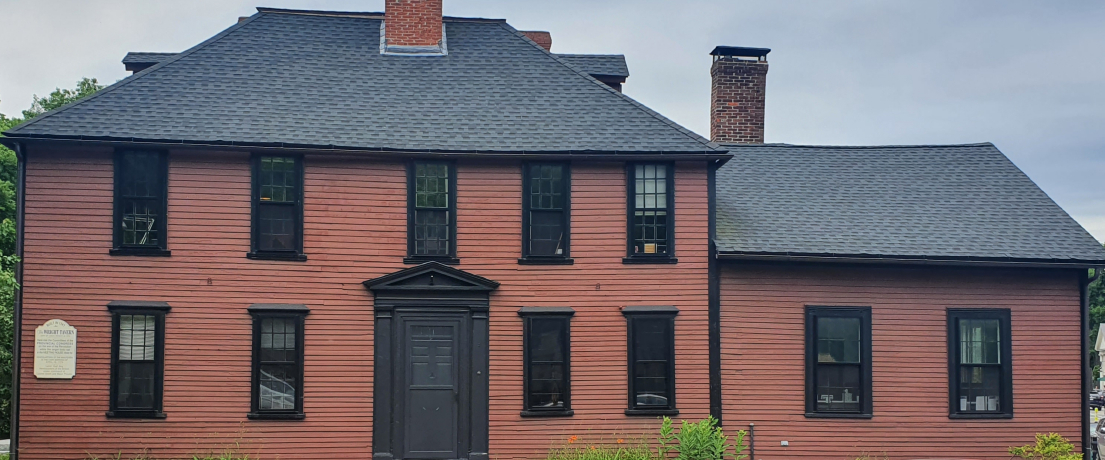I, Thomas Thorp of Acton, testify that I was a member of Capt. Isaac Davis’ company, which was formed in November 1774. We usually met twice a week for drill. Capt. Davis was a gunsmith. On the morning of the 19th of April 1775 I had notice that the regulars were coming to Concord. I took my equipment and proceeded to Capt. Davis’ house. I passed the house of the Rev. Swift. His son, Dr. Swift, made me a present of a cartridge box as he saw I had none. I well remember that there was, on the outside, a piece of red cloth in the shape of a heart. Several of the company had arrived before me and some of them were putting powder (flour) on their hair. About half the company formed there and the remainder, as many as forty in the whole, joined us early in the day and most of them before the fight. We made a short stay near Col. Barrett’s and proceeded to North Bridge, where we found a great collection of armed men from Concord and other towns, there were several hundreds, cannot say how many. The officers seemed to be talking by themselves and the British were at the bridge.
Our officers joined the others and, in a few minutes, not exceeding five, Capt. Davis returned to his company, said something which I do not recollect and gave the word “march.” It seemed to have been agreed that Capt. Davis should go in front. He had not taken the right of the other companies as has been stated. The Concord minute company was the oldest and, as such, had taken its place at a muster a short time before. Our company, however, marched in front and Major Buttrick and Col. Robinson were with Capt. Davis.
As we were advancing, the British began to take up the bridge, on which, we quickened our pace and ran toward them. They desisted and joined their ranks. I saw a ball strike the water on my right and some other guns were fired over our heads. A volley was then discharged at us and Luther Blanchard, our fifer, was wounded. We were then ordered to fire and did so. The fire was returned and Capt. Davis and Abner Hosmer, one of his men, were killed and Ezekiel Davis, a brother of the captain, had a ball pass through his hat. I did not understand that he was injured but have since understood that his head was slightly touched by the ball.
Two of the enemy were killed, one with a hatchet after being wounded and helpless. This act was a matter of horror to us all. I saw him sitting up and wounded as we had passed the bridge.
Our company and most of the others pursued but in great disorder, went to an eminence back of Elisha Jones’ and stood behind a wall forty rods or more from where the British had joined a reinforcement. In a short time we returned over the bridge but did not form in any order. As we stood there, the detachment from Col. Barrett’s returned.
